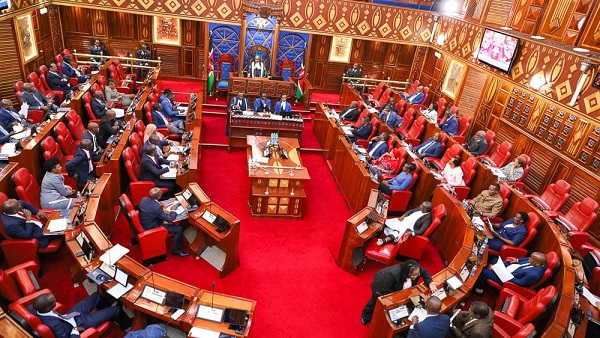In Summary
Tharaka Nithi Senator introduces a bill seeking to make Junior Secondary Schools (JSS) independent institutions. Backed by over 40 senators, the proposal aims to end conflicts between JSS teachers and primary school heads and improve education quality.
Kenya’s education system is poised for a major transformation after Tharaka Nithi Senator introduced a bill that seeks to grant Junior Secondary Schools (JSS) full autonomy as independent learning institutions. The proposed legislation, now backed by over 40 senators, aims to separate JSS from primary schools and officially recognize them as standalone entities offering basic education.
The senator, who tabled the Junior School Autonomy Bill, argued that persistent conflicts between JSS teachers and primary school heads have disrupted smooth learning and affected the quality of education. According to him, most of the challenges currently witnessed in JSS arise from administrative overlaps and lack of a clear structure of authority within schools.
“Teachers at the junior level operate under confusion because their roles are often undermined or restricted by primary school heads who still control resources,” the senator noted. “Granting autonomy will promote accountability, professionalism, and better learning environments for our young learners.”
The proposal has gained strong traction in the Senate, with bipartisan support from legislators who believe independence for JSS will streamline curriculum delivery and improve teacher management. Several senators have emphasized that the Competency-Based Curriculum (CBC) can only succeed if Junior Secondary Schools are treated as distinct institutions with their own leadership, budgets, and management systems.

Meanwhile, in the National Assembly, a parallel debate is unfolding. Several Members of Parliament (MPs) have indicated that they will oppose any move to establish comprehensive schools—institutions combining both primary and junior secondary sections under one administration. Lawmakers argue that merging the two levels creates confusion in staffing, leadership, and infrastructure allocation.
Education experts and teacher unions have also weighed in, saying autonomy for JSS would ensure fair distribution of resources and promote equal growth opportunities for teachers. They add that independent management could enhance discipline, innovation, and specialization at this crucial stage of learning.
If passed, the Junior School Autonomy Bill will mark a turning point in Kenya’s education reforms. It will redefine the structure of basic education, ensure smooth implementation of the CBC, and protect the interests of both teachers and learners.
The growing momentum behind the bill signals a new chapter in Kenya’s education transformation, as policymakers move to strengthen governance, improve quality, and resolve the lingering tensions that have slowed progress at the junior secondary level.





